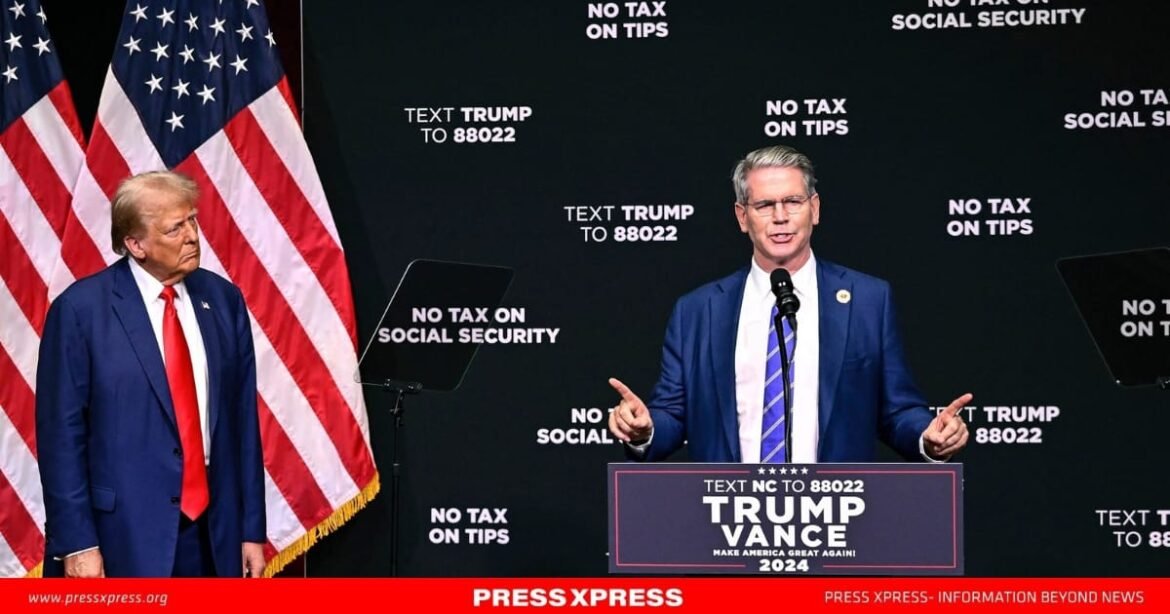Donald Trump’s choice of billionaire investor Scott Bessent as Treasury secretary signals a bold strategy to reshape the U.S. economy through tax cuts, trade reform, and fiscal discipline.
President-elect Donald Trump has named billionaire hedge fund manager Scott Bessent as Treasury secretary, a decision that underscores his administration’s focus on tax reform, trade tariffs, and a robust private-sector revival. The 62-year-old founder of Key Square Capital Management is a seasoned Wall Street financier with deep ties to both global markets and conservative economic policies.
Bessent’s appointment follows a series of high-profile cabinet announcements and comes at a pivotal moment, as the U.S. navigates a global economy marked by inflationary pressures, trade imbalances, and geopolitical uncertainties. His selection is a nod to Trump’s economic vision of fortifying the nation’s competitive edge through deregulation, domestic energy expansion, and recalibrating international trade agreements.
Bessent’s Profile: A Veteran of Finance and Geopolitics
Scott Bessent’s financial acumen is rooted in a storied Wall Street career. Before founding Key Square Capital Management in 2015, Bessent served as chief investment officer for George Soros’s Soros Fund Management, overseeing a portfolio valued at over $30 billion. Known for his analytical prowess and ability to predict market trends, Bessent played a crucial role in Soros’s famed bet against the British pound in 1992, an event that defined modern hedge fund strategies.
Since leaving Soros Fund Management, Bessent has focused on managing Key Square, which has earned recognition for its strategic investments in international equities and macroeconomic bets. A staunch advocate of free-market principles, Bessent has often championed policies that reduce government intervention, encourage innovation, and expand private enterprise.
Beyond his financial expertise, Bessent has been an early and consistent supporter of Trump’s political vision. He contributed at least $3 million to Trump’s 2024 campaign and has frequently voiced support for policies such as deregulation, energy independence, and the strategic use of tariffs to rebalance global trade.

Scott Bessent speaks at a campaign event for Donald Trump in Asheville, North Carolina, United States [Credits: Reuters]
Key Economic Mandates for Treasury Leadership
As Treasury secretary, Bessent will oversee the implementation of Trump’s ambitious economic agenda, which includes extending tax cuts enacted during the president’s previous term, expanding domestic manufacturing, and curbing federal debt. This portfolio positions him at the intersection of domestic policy and international finance, where his experience in global markets is expected to play a crucial role.
- Tax Reform and Deregulation: Trump’s administration plans to simplify the tax code further, with potential cuts for middle-income families and small businesses. Bessent’s role will involve aligning these reforms with long-term fiscal sustainability, particularly as federal debt levels approach $34 trillion. His support for rolling back subsidies and cutting red tape aligns with Trump’s broader goal of empowering the private sector.
- Trade and Tariffs: Bessent will also oversee trade policies aimed at countering perceived imbalances with major partners such as China. While critics argue that tariffs could escalate trade tensions, Bessent has defended them as necessary tools for leveling the playing field. His background in international finance could provide valuable insights into crafting targeted measures that strengthen domestic industries while minimizing disruptions to global supply chains.
- Debt Management and International Finance: Managing public debt and navigating global financial markets will be among Bessent’s most critical responsibilities. With U.S. federal debt exceeding $33 trillion, Bessent’s role will include strategizing ways to rein in borrowing while maintaining economic momentum. His history in investment management suggests a focus on fiscal sustainability without stifling growth.
A New Direction for U.S. Economic Policy?
Bessent’s appointment signals a shift toward a Treasury Department led by private-sector expertise rather than career politicians. His track record of navigating complex financial landscapes and his alignment with Trump’s economic philosophy suggest a bold approach to addressing both immediate challenges and long-term goals.
The choice of Bessent, a figure well-regarded on Wall Street, has elicited mixed responses from the business community and market analysts. His background as a hedge fund manager is viewed as a double-edged sword: on one hand, it brings practical financial acumen; on the other, it raises concerns about prioritizing corporate interests over broader economic equity.
Supporters highlight Bessent’s ability to navigate complex financial systems, which they argue is crucial for executing Trump’s ambitious economic agenda. Critics, however, caution against an overreliance on tariffs, citing risks of retaliatory measures and inflationary pressures on American consumers. Balancing growth-oriented policies with fiscal responsibility will be crucial for Bessent’s tenure.
The Man Behind the Numbers
Though often portrayed as a cerebral financier, Scott Bessent brings a human element to his new role. Known for his philanthropy, he has supported initiatives in education and the arts, often citing the importance of fostering creativity and innovation in society. Colleagues describe him as approachable, pragmatic, and deeply committed to problem-solving.
Bessent’s personal connection to Trump’s economic vision stems from his belief in the resilience of American enterprise. “This country thrives when its citizens are empowered to create, innovate, and lead,” Bessent once remarked during a campaign event. This philosophy will likely inform his leadership at the Treasury Department.

A High-Stakes Appointment?
Scott Bessent’s appointment as Treasury secretary marks a decisive moment in shaping America’s economic future. With a mandate to implement tax reforms, recalibrate trade relationships, and address the federal debt, his expertise and alignment with Trump’s vision will be critical in achieving these ambitious goals. While the challenges are substantial, Bessent’s proven track record and strategic mindset position him as a key player in steering the U.S. economy through uncertain times.
As the administration takes shape, all eyes will be on Bessent to deliver results that reinforce America’s economic strength and uphold its position as a global leader.


